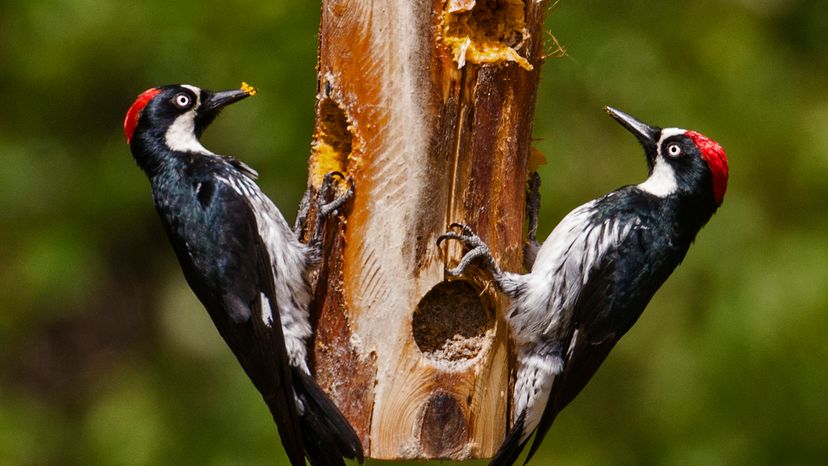
Finding an effective solution for how to keep woodpeckers away can be a challenge for many homeowners. These birds, known for their sharp beaks and persistent pecking, can cause significant damage to wooden structures and siding. Understanding their behavior and the reasons behind their pecking is essential in developing strategies to deter them. This article aims to provide informative tips to prevent woodpeckers from damaging your property while also ensuring that your efforts align with the Federal Migratory Bird Treaty Act and other wildlife regulations.
Advertisement
Use Visual Deterrents
Visual deterrents can be effective in discouraging woodpeckers. Shiny objects like aluminum foil, reflective tape, or even old CDs can be hung near the affected areas. The movement and reflection from these items disorient and scare the birds, reducing the likelihood of them pecking at your wood siding or cedar siding. Ensure these deterrents move in the wind for maximum effect.
Implement Physical Barriers
Installing physical barriers such as burlap or bird netting can prevent woodpeckers from accessing areas where they like to create nests or feed. Place the netting a few inches away from the surface to stop woodpeckers from reaching the wood. This method is particularly effective for protecting fruit trees and wooden structures from both woodpecker damage and other pests.
Hang Wind Chimes
Wind chimes serve as an auditory and visual deterrent. The sound created by wind chimes can help create loud noises that deter woodpeckers without causing a nuisance to humans. Their movement also acts as a visual scare tactic. Place them near areas where woodpeckers pecking is a problem, such as near eaves or wooden beams.
Use Woodpecker Distress Calls
Playing woodpecker distress calls can be an effective way to discourage woodpeckers. These sounds, which can be found in specialized devices, mimic the calls of a distressed bird, signaling danger to other birds, including woodpeckers. This method can make woodpeckers feel unsafe and encourage them to move elsewhere.
Advertisement
Maintain Your Property
You can also prevent woodpeckers by maintaining your property. Rotting wood attracts woodpeckers and carpenter bees, another food source for these birds. Repairing woodpecker holes promptly with wood putty and replacing rotting wood or damaged wood siding can make your property less attractive to them.
Provide Alternative Food Sources
Setting up a suet feeder away from your house can attract woodpeckers to a different location. By providing an alternative food source, you may prevent woodpeckers from pecking at your house, especially during the mating season or times when their natural food sources are scarce.
Use Owl Decoys
Plastic owls or owl decoys can be used to frighten woodpeckers. These decoys should be moved regularly to maintain the illusion of a real threat. However, be aware that over time, woodpeckers may realize these are not real predators, so this method should be used in conjunction with others.
Apply Taste Deterrents
Non-toxic taste deterrents, available in spray forms, can deter woodpeckers. These substances, when applied to affected areas, make the wood unappealing to the birds. It’s essential to reapply these deterrents regularly, especially after rain or snow.
Additionally, a natural way to deter woodpeckers is by using smells that they hate. Some of these include peppermint, cinnamon, lavender, basil, onion, and garlic. Place them near the trouble areas to help deter woodpeckers from causing damage.
Seal Entry Points
Inspect your home for any small openings or insect infestations that might attract woodpeckers. Sealing these entry points can reduce the likelihood of woodpeckers creating nests or searching for food in your wooden structures.
Advertisement
Encourage Natural Predators
Encouraging the presence of natural predators can also help control the woodpecker population. While it’s not always feasible, the presence of birds of prey in the area can act as a natural deterrent for woodpeckers and other birds.
Don't Let Woodpeckers Damage Your Property
Effectively deterring woodpeckers requires a combination of strategies. By understanding the behaviors and preferences of these protected birds, you can implement methods that discourage woodpeckers without harming them. Remember, preventing damage to your property is important, but it's equally vital to comply with laws protecting wildlife, including the Federal Migratory Bird Treaty Act.
This article was updated in conjunction with AI technology, then fact-checked and edited by a HowStuffWorks editor.
Advertisement